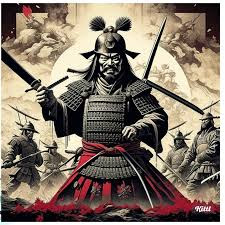In the realm of trading, Sun Tzu, the renowned military philosopher, imparts principles of the art of war that can be applied in trading strategies. This article will elucidate several relevant teachings of Sun Tzu that can be utilized to enhance your trading skills.
1. Measurement, Estimation, Calculation, Balancing Odds, Victory
In trading strategy, akin to military methods, we need to have measurement, estimation of quantities, calculation, balancing odds, and focus on victory. Having well-defined rules or systems aids in evaluating trading potential.
2. Right Positioning and Sizing of Trades
When trading, it's crucial to clearly determine your position. Trade sizing should be based on your capital. Additionally, establish cut-loss and profit-taking levels and calculate risk-reward ratios to minimize risks.
3. Adaptation to Market Changes
"Do not repeat the tactics which have gained you one victory, but let your methods be regulated by the infinite variety of circumstances." Markets are always changing, and systems that worked in the past may no longer be effective. Review and refine your system periodically.
4. Reading the Market Sentiment
"The central idea of trading is to read the mood of the market or market sentiment." Price action, volume, and indicators are clues about market sentiment. Success in trading involves the ability to understand and interpret this sentiment.
5. Following Market Trends
"The key to trading is not to go against the trend." Identify the direction of market trends and focus on trading opportunities aligned with that direction. Don't fight the market, but leverage the existing opportunities.
6. Flexibility and Adaptation
"A smart general avoids the enemy when his spirits are keen, but attacks when they are sluggish and likely to return." Traders must be able to adapt to market conditions and adjust strategies as needed.
7. Knowing Yourself and the Market
"If you know the enemy and know yourself, you need not fear the result of a hundred battles." Knowing yourself involves understanding your own psychology and behavior, while knowing the market involves deep analysis of market conditions before trading.
8. Capital Protection and Discipline
"To secure ourselves against defeat lies in our own hands." Protect your capital by adhering to the rules of your trading system and maintaining discipline, even in the face of losses.
9. Errors as Learning Opportunities
"The art of war teaches us not to rely on the likelihood of the enemy's not coming, but on our own readiness to receive him." Learning from mistakes is key to growth and resilience in the market.
By applying these principles in your trading, you can develop stronger strategies and increase your chances of success in the financial markets. Remember, trading is not just about winning but also about managing risk and continually evolving as a trader.


.jpg)
.png)
.jpg)

.png)
.jpg)



